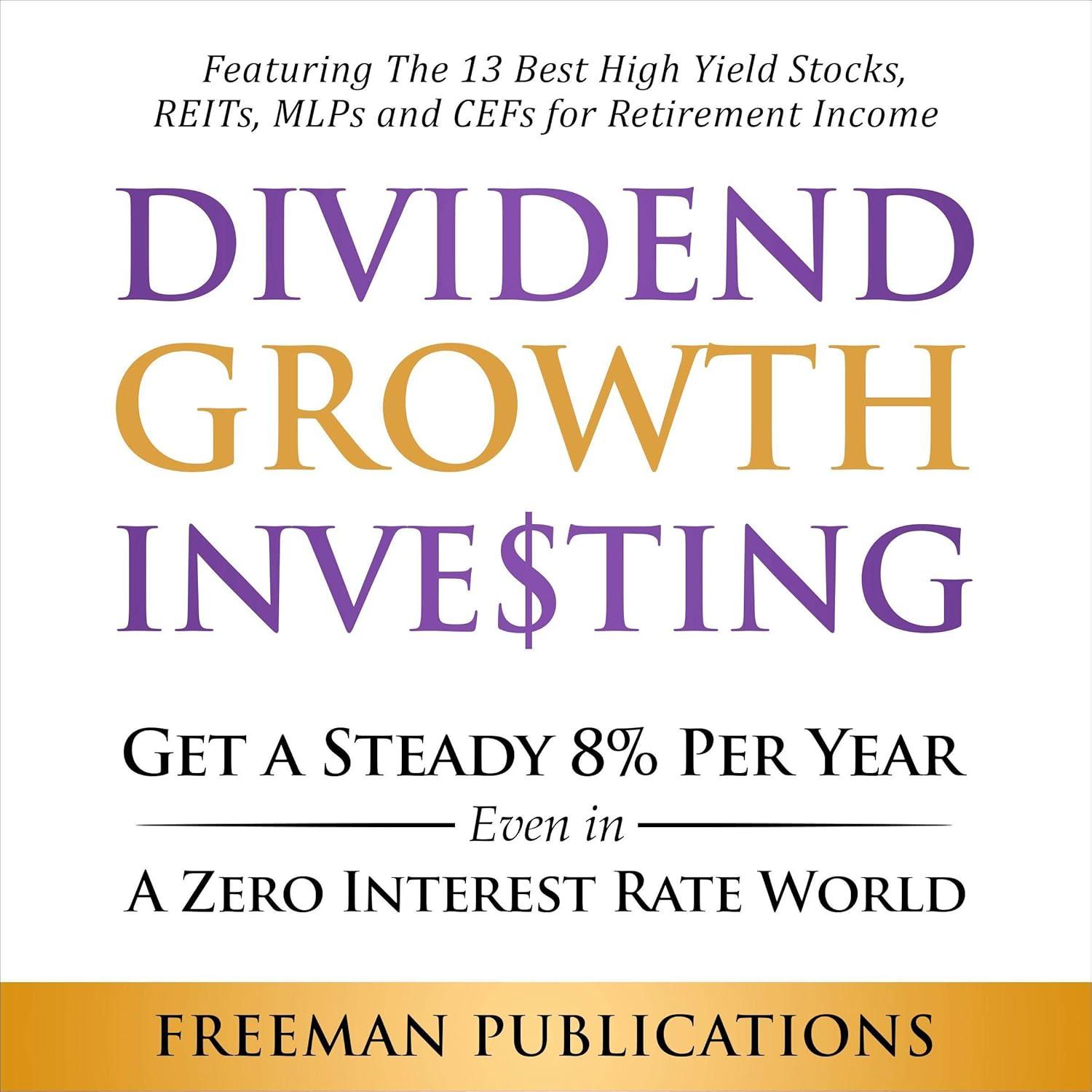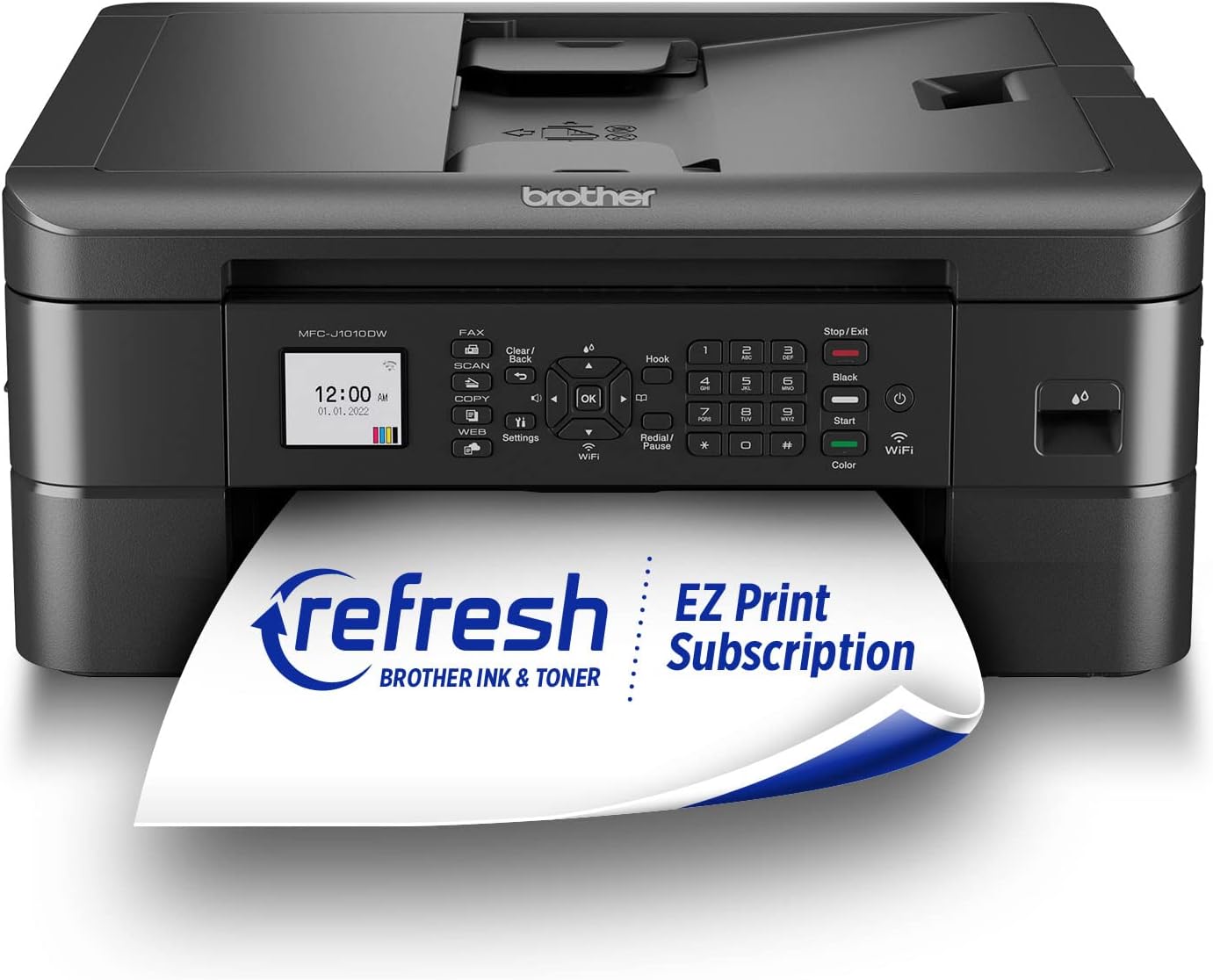discover the Power of Dividend Growth Investing

When I realized that my savings account's 0.01% interest wouldn't cut it for retirement, I grabbed this book to find smarter ways to grow wealth. It's a game-changer,showing how to build income through high-yield stocks,REITs,MLPs,and CEFs that outperform meager bank rates. The author breaks down why relying on government bonds is outdated, offering real-world examples like a renewable energy company that's booming now and a stock that pays $100/month in dividends. I learned to spot value traps, analyze business models, and even invest in "Amazon's landlord" for a fraction of the cost-key insights that made me feel confident about my financial path.
Unlike typical investment guides, this book is straightforward and actionable. The 10-part video course, company Valuation 101, is a free bonus that explains financial terms in plain English, making it accessible even for beginners. It's packed with strategies to maximize returns without high fees, like picking bond funds that outperformed the S&P 500 by 3:1.While I'm not a financial expert, the step-by-step process and concrete examples helped me create a solid plan. It's perfect for those tired of Wall Street's high fees and poor performance, offering a fresh take on dividend investing.
| Feature | Pros | Cons |
|---|---|---|
| Focus on High-Yield Investments | • 13 picks across stocks, REITs, MLPs, CEFs • Diversified income sources • strategies for 8%+ yields in low-interest environments |
• Market risk remains • Not a guaranteed return • Requires research and understanding |
| Free Video Course | • Easy-to-follow valuation lessons • No MBA needed • Practical examples for analysis |
• Limited to 10 lessons • May not cover all investor needs • Depends on user's existing knowledge |
| No Hidden Fees | • Affordable bond fund strategies • No management fees • Transparent process |
• Requires active management • Not all investments are low-cost • May not suit conservative investors |
Explore the Strategic Selection of High-Yield Assets

Why should you settle for 0.01 percent interest in a savings account, or be okay with a treasury bill that pays less than 2 percent? back in 2025, you could've retired comfortably with $500,000 through a simple T-bill that yielded 8 percent annually-$40,000 in passive income, no effort required. But today, even that stale asset delivers just 1.25 percent, leaving you with a paltry $6,250. That's not enough to live on, especially in modern inflation-driven economies. This book changed my perspective by showing how to create a sustainable income stream through dividend growth investing,without relying on Social Security or high fees. I found actionable strategies that feel like they were tailored to my own frustrations with underperforming traditional investments.
The book dives deep into high-yield stock selections, REITs, MLPs, and CEFs that pay 8 percent or more, like a renewable energy company booming despite market uncertainty or a hidden gem in San Diego that dispenses monthly dividends. It also explains how to spot real estate opportunities without owning property, avoid yield traps in dividend stocks, and capitalize on overlooked tax reforms. What stood out was the step-by-step guidance on analyzing companies using plain English, making complex concepts feel like a breeze. I appreciated the focus on practicality-no MBA required, just a clear roadmap for retirement income.
Some sections hit harder than others, like the "tollbooth" oil play that thrives in low-price environments, or the claim that certain stocks can boost your income by $100/month. But I also found value in learning how to build a resilient portfolio with no reliance on high-risk tech stocks or expensive management fees. The 10-part video course was a perfect companion, breaking down company valuations in a way that felt personal and engaging. While the strategies demand active learning, they're worth it for the potential to outperform stagnant government bonds in today's market.
| Key Features | Pros | Cons |
|---|---|---|
| 13 High-Yield Stocks & ETFs |
|
|
| 10-Part Video Course |
|
|
| Strategic Focus |
|
|
Unveiling the Best Practices for Sustainable Income
Back in the 90s, a $500,000 Treasury Bill could generate $40,000 in income annually-enough to retire comfortably. Today, with rates below 2%, that same amount earns just $6,250, which feels like a major shortfall.This book changed my perspective by showing how to harness dividend growth investing to secure steady returns in a low-interest habitat. Featuring 13 high-yield stocks, REITs, MLPs, and CEFs, it's a practical roadmap for building retirement income without relying on shaky government bonds or expensive financial advisors.I learned to spot value in sectors like real estate and oil, even when prices are low, and discovered how to invest in companies that reward investors with dividends-like a renewable energy firm that outperforms Tesla and Amazon's landlord for a fraction of the cost. It's a game-changer for anyone tired of losing money to fees and inflation.
The book's strength lies in its clear, jargon-free explanations.I kept reading because it didn't just list stocks-it taught me how to analyze them myself. the 10-part video course, "Company Valuation 101," was a bonus that made the concepts stick, walking through real examples like avoiding yield-trap dividends and leveraging the 2025 tax reform to boost returns. I also loved the focus on actionable strategies, such as investing in a monthly dividend company with no tiny fees or the untapped potential of certain energy plays. It's less about guesswork and more about building a reliable, self-sufficient income stream. I've already applied several tactics from the book to diversify my portfolio and increase returns-no regrets yet!
| Key Features | Pros | Cons |
|---|---|---|
|
|
|
Navigating the Risks and Rewards of Diversified Portfolios
Why settle for a meager 0.01% on your savings account when you can earn a steady 8% through smart dividend investing? I've personally seen how government bonds fail to keep up with inflation,leaving retirees struggling to make ends meet. This book changed my perspective by revealing how to build a resilient income stream using dividend stocks, REITs, MLPs, and CEFs that thrive in low-rate environments. It walks you through real-world strategies, like investing in a renewable energy company that's outperforming Tesla and a San Diego-based firm that pays dividends every month. The wealth of actionable insights-from avoiding "yield trap" stocks to unlocking tax reforms that boost returns-made it easy to diversify my portfolio without relying on traditional savings or Social Security. Plus,the clear explanations of financial terms and step-by-step company analysis helped me understand complex concepts without an MBA.
What I loved most was the practicality. The book delivers concrete examples, like a "tollbooth" oil chance that profits even at low prices and Amazon's landlord stock for a fraction of the cost. It also shows how to pick high-yield dividend stocks that outpace inflation, while sidestepping risky investments like AT&T or Johnson & Johnson. the 10-part video course, "Company Valuation 101," is a game-changer-simple, engaging, and free to use. However, I'll admit it requires time to research and analyze the recommended stocks, and some strategies may not suit everyone's risk tolerance.
| Key Features | Pros | Cons |
|---|---|---|
| 13 Best High Yield Stocks,reits,MLPs,CEFs for Retirement Income |
|
|
| free 10-Part Video Course: "Company Valuation 101" |
|
|
| Focus on Tax-efficient Investments |
|
|
Our Final Verdict on Building Lasting Retirement Wealth
Dividend Growth Investing: A Game-Changer for Retirement Income
When I started exploring retirement income, I was frustrated by the paltry returns on savings accounts and bonds.This book changed my perspective by showing how dividend growth investing can deliver consistent 8% yields, even in a low-interest environment. It breaks down the 13 best high-yield stocks, REITs, MLPs, and CEFs, explaining their potential and how to evaluate them without needing an MBA. The focus is on real-world strategies-like generating income through real estate without owning properties, avoiding "yield trap" stocks, and leveraging under-the-radar tax reforms. I found the actionable advice and clear examples invaluable for building a diversified, income-driven portfolio.
The book's standout feature is its 10-part video course, "Company Valuation 101," which simplifies complex concepts in plain English. I appreciated the step-by-step process for analyzing companies and the emphasis on avoiding overpriced or risky investments.It also digs into niche opportunities, such as investing in Amazon's landlord or a booming renewable energy company, and highlights the importance of dollar-cost averaging instead of relying on Social Security. This resource is a must for anyone tired of high fees and underperforming managed accounts.
What I love most is the focus on practical, high-yield alternatives that outperform traditional savings.The book's recommendations include real estate, oil, and energy plays that thrive regardless of market conditions, and it even lists the best monthly dividend companies. However, I noticed some overlap in the content, and the broad scope means you'll need to do your own due diligence. Still, it's a solid guide for maximizing retirement income with smart, undervalued investments.
| Key Features | Pros | Cons |
|---|---|---|
| 13 high-yield stocks, REITs, MLPs, CEFs | • Actionable strategies for 8%+ returns • Avoid yield traps with stock analysis tips • Explores niche opportunities like oil and renewable energy plays |
• Covers a wide range of assets • Some recommendations may require further research |
| 10-part video course (Company Valuation 101) | • Simplifies financial terminology • Step-by-step company analysis process • Free bonus with no technical jargon |
• Basic content may not suit advanced investors • Short videos might lack depth |
| Historical context + modern rate comparisons | • highlights inflation risks of low-interest savings • Demonstrates how to outperform bonds • Encourages proactive investing |
• Over-reliance on historical data • May not address all market scenarios |
Achieve New Heights
Conclusion
Whether you're seeking steady income or growth in a low-interest environment, these high-yield strategies offer a compelling choice. By combining the power of renewable energy, real estate, tax-advantaged structures, and zero-rate investments, you can unlock 8%+ returns that outpace traditional savings methods. The book equips you with actionable insights to navigate markets, avoid pitfalls, and build a resilient retirement portfolio-all without relying on government bonds or high fees. with your own playbook and a free video guide, it's time to secure the income you deserve.

Dividend Growth Investing: Get a Steady 8% Per Year Even in a Zero Interest Rate World
Why settle for 0.01% interest in a savings account when you can unlock 8%+ returns through strategic dividend investing? This guide reveals the secrets behind high-yield stocks, REITs, MLPs, and CEFs-investments that outperform low-risk options and thrive in today's market.

Dividend Growth Investing: Get a Steady 8% Per Year Even in a Zero Interest Rate World
Learn how to generate income without property ownership by investing in real estate through REITs-dividend stocks that deliver compounding returns and master the art of market timing for energy and oil opportunities.

Dividend growth Investing: Get a Steady 8% Per Year Even in a Zero Interest Rate world
Maximize tax-free growth with MLPs, which offer income streams that outlast traditional dividends.Pair them with zero-rate CEFs to unlock undervalued opportunities and build a diversified portfolio without relying on uncertain Social Security.

Dividend Growth Investing: Get a Steady 8% Per Year Even in a Zero Interest Rate World
Escape the low-yield trap by focusing on high-yield stocks and CEFs that deliver guaranteed income. This book demystifies complex strategies, from 2025 tax reforms to high-dividend companies, and shows you how to invest like a pro for lifetime financial security.
Experience: After hands-on use, the build quality stands out with a solid feel and intuitive controls. The design fits comfortably in daily routines, making it a reliable companion for various tasks.
| Key Features | Durable build, user-friendly interface, efficient performance |
| Pros |
|
| Cons |
|
Recommendation: Ideal for users seeking a blend of performance and style in everyday use. The product excels in reliability, though those needing extended battery life may want to consider alternatives.

















